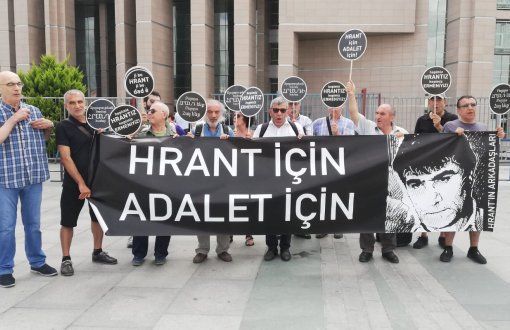
Turkey’s Supreme Court of Appeals 14th Penal Chamber overturned a previous ruling of acquittals of “obscenity” regarding Guillaume Apollinaire's “The Exploits of Young Don Juan” - a verdict ruled by Istanbul 2nd Assize Court.
Ruling that the previous ruling was “unlawful”, Supreme Court of Appeals said the book could not be considered within the freedom of expression.
“The previous court ruling was issued upon expert reports and defenses,” Irfan Sancı, owner of Sel Publishing House, told bianet. “We are going to repeat the same things all over again.”
“It is impossible to agree with Supreme Court of Appeals verdict. On the other hand, Guillaume Apollinaire’s written works have been recognized as world heritage by European Parliament. In a way, they are prosecuting the world heritage here.
“We don’t appreciate the fact that experts are to determine whether a book is literary or not. This decision can only be made by readers, publishers and editors. You can’t say a book is literary because the court said so. However, we applied to court for expert report after a report by Prime Ministry Protecting Youngsters From Obscene Publications Council.
This is why we requested a report from Galatasaray University. After this, all we will do at court is to repeat this all over again.
“Moral values should be protected in democratic societies”
Previously, publishing house owner Irfan Sancı and translator Ismail Yerguz stood trial for translating and publishing “obscene” material. Istanbul 2nd Assize Court acquitted the book “The Exploits of Young Don Juan”, saying that it didn’t include any crime elements.
The case was sent to Supreme Court of Appeal 14th Penal Chamber upon the appeals. The chamber unanimously overthrew the previous ruling, ordering a new trial with charges from 6 to 10 years of prison.
Some of the highlights from the verdict included:
“The aforementioned book in trial included content with no story frame and solely simple expression to arouse sexual instincts. Through the narrative of children, it uses a language where anal, lesbian, unnatural and bestial relations are depicted. Those expressions degrades society’s general moral values, provoked and violated sexual desires, and disgusted readers with depictions of characters’ excretion. The aforementioned book was not based on artistic point of view. It is unacceptable that a French translation including pervert expression on family members, same sexes and animals could be considered as symbol of open-mindedness within the borders of expression freedom in a democratic society.
The court also cited a 1976 ruling of the European Court of Human Rights in the case of Handyside v. United Kingdom, saying that the verdict determined the extent to which obscene and pornographic content could be tolerated. It also claimed that “democratic societies envisioned restrictive measures in which general morality and health could be protected, as well as crimes and disorders could be prevented according to a legitimate cause”.
Ordering the previous court to account for “the reason why it didn’t take into consideration on reports saying that the book has no literary or artistic value”, Supreme Court of Appeals ruled that the acquittal ruling was only based on an expert report dated on 10 March 2010 and didn’t refer to Turkish Penal Code Article 226/5. Therefore, it is unlawful.” (EA/BM)
* Click here to read the original article in Turkish.










.jpg)
.jpg)